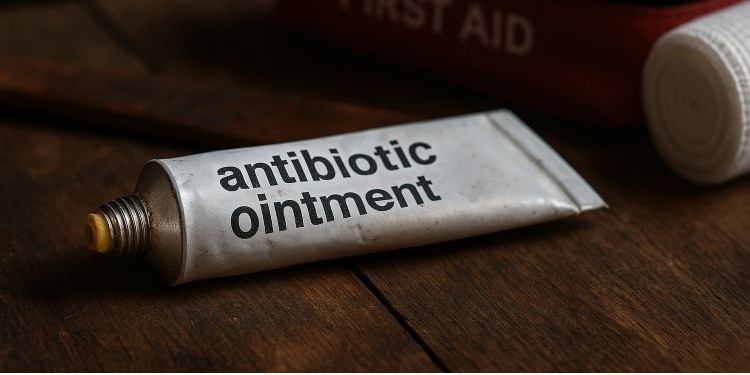Does Antibiotic Ointment Expire? – Ask a Prepper

The Hidden Shelf Life of Your First Aid Kit
Here’s a question that almost nobody asks until it’s too late: does antibiotic ointment expire? You probably have a dusty tube of Neosporin, Polysporin, or some generic triple-antibiotic cream shoved in your bathroom cabinet right now. Maybe it’s from last summer’s camping trip. Maybe it’s been riding around in your bug out bag for years. And here’s the kicker—you’re trusting that ointment to protect you from infection when it matters most.
But here’s the truth Big Pharma won’t spell out in giant letters on the box: yes, antibiotic ointment does expire. And depending on how you store it, that expiration date might mean the difference between healing cleanly or ending up with a festering wound when there’s no hospital to run to.
What Happens After Expiration?
When ointment expires, it doesn’t suddenly turn into poison—that’s the myth most people believe. The danger is more subtle and, in some ways, more dangerous. The active ingredients—the antibiotics—lose their punch over time. What you’re left with is a cream that still looks fine, maybe even smells fine, but it no longer fights bacteria effectively.
Think about what that means in a crisis. You’re patching up a cut, scrape, or burn, believing your trusty ointment is guarding against infection. Meanwhile, bacteria are multiplying underneath the bandage, completely unchecked. You think you’re safe—until the red streaks start crawling up your arm.
And don’t ignore the carrier base of the ointment itself. Over years, it can separate, dry out, or change texture. That makes it harder to apply and less effective at protecting the wound. Best case? It’s just greasy and useless. Worst case? It becomes a breeding ground for the very germs you’re trying to keep out.
How Long Does Antibiotic Ointment Really Last?
The official answer is about one to three years, depending on the brand. That’s the printed expiration date you’ll find on the tube or box. Manufacturers set these dates conservatively—partly for safety, partly because it means you’ll buy more product.
But here’s the unofficial truth: if stored properly in a cool, dark place, unopened tubes can often retain potency for a year or two past their printed date. Once opened, the clock ticks faster. Every time you unscrew the cap, bacteria from your fingers and the air can contaminate the tube, slowly breaking it down.
So yes, expired ointment might still work—but “might” is a gamble you don’t want to play when infection could turn deadly. In survival situations, you need certainty, not question marks.
Storage Makes or Breaks It
If you want your antibiotic ointment to last, storage is everything. Heat, sunlight, and moisture speed up chemical breakdown. That’s why the tube in your glovebox or outdoor first aid kit dies much faster than the one in your cool bathroom drawer.
- Best storage: dark, dry, room-temperature areas.
- Worst storage: hot cars, damp basements, or humid bathrooms.
- Pro tip: vacuum-seal unopened tubes for long-term kits—oxygen and light are the enemies.
If you’re serious about prepping, you rotate your food stockpile. The same logic applies here—rotate your medical stockpile. First in, first out.
The Bigger Picture Nobody Talks About
So, does antibiotic ointment expire? Yes. But here’s the bigger, scarier question: what happens when you can’t get more? Pharmacies close. Supply chains collapse. Suddenly, a tiny scratch becomes a life-or-death scenario.
Relying only on store-bought ointment is short-term thinking. Long-term survival means knowing alternatives—plants, natural antiseptics, and old-world remedies that don’t rely on a factory tube. Because when the shelves are bare, you either have knowledge… or you have nothing.
Final Thoughts
That little tube of ointment is a safety net—but only if you respect its limits. Yes, antibiotic ointments expire, and expired tubes lose their ability to protect you when you need it most. Store them wisely, rotate them often, and prepare for the day when replacement isn’t an option.
Preparedness is about more than stockpiling—it’s about resilience. And resilience means asking the questions no one else thinks to ask, like: Will my medicine still work when I need it most?
When the Tube Runs Dry, Knowledge Takes Over
Antibiotic ointment has an expiration date—and so does your access to pharmacies. When the grid goes down, when shelves are stripped bare, you won’t have the luxury of buying a fresh tube. You’ll have to rely on what you know.
That’s why The Home Doctor: Practical Medicine for Every Household is so valuable. It gives you proven, practical ways to treat infections, wounds, fevers, and more when conventional medicine isn’t available. From herbal remedies to old-world healing techniques, this book puts the power back in your hands.
👉 Click here to learn more about The Home Doctor and start preparing for the day when medicine is no longer just a short drive away.
You may also like:
 What Really Happens When You Take Antibiotics After Their Expiration Date
What Really Happens When You Take Antibiotics After Their Expiration Date
The Only 4 Remedies You’ll Need When SHTF (Video)
Amoxicillin Antibiotic Expiration Guide – Separating Facts From Fiction
Can This Be A Better Alternative To Modern Antibiotics?
The Most Powerful Natural Antibiotics Known to Mankind
Read the full article here









